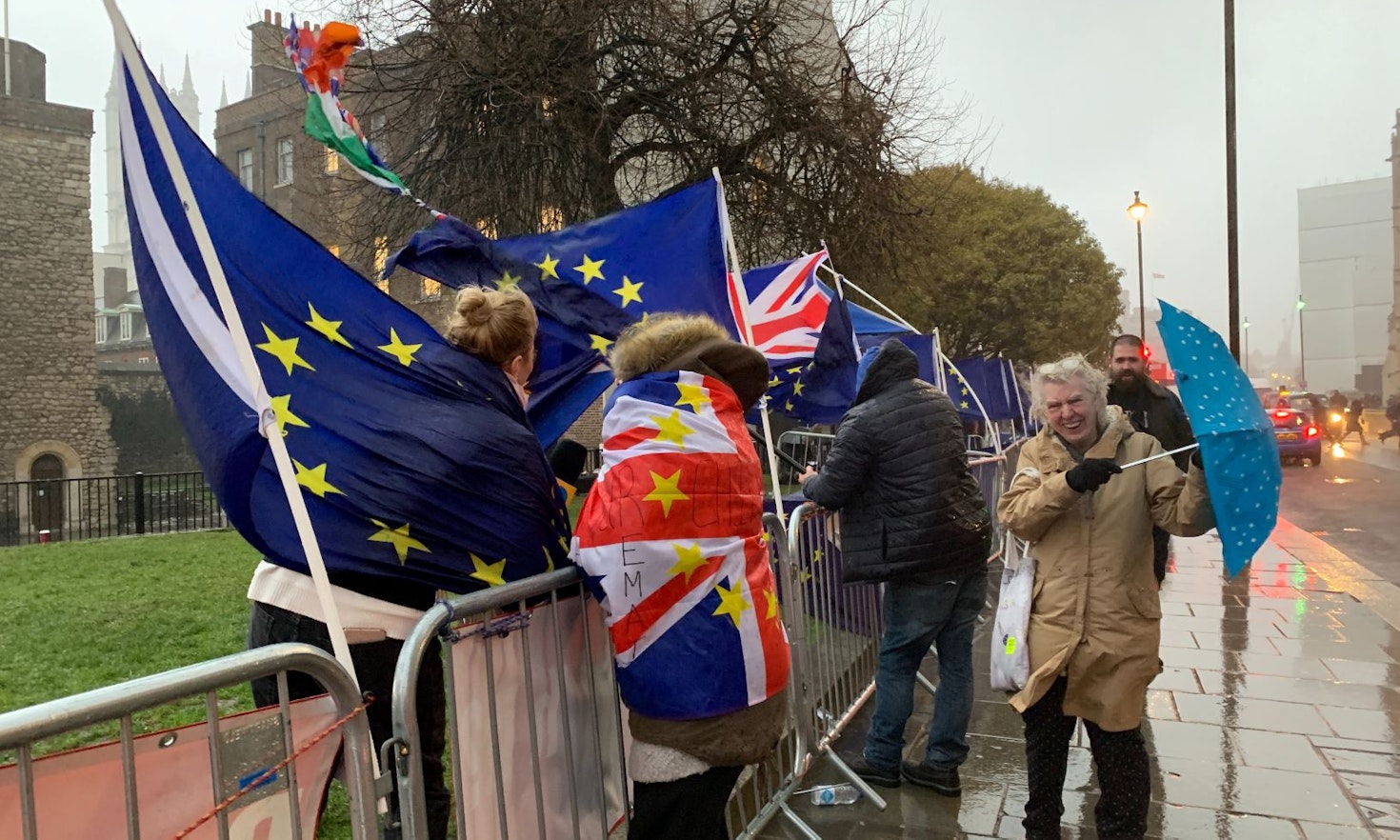The UK - Curious Election

Sam Goldwyn said, never predict, especially about the future. Yet for the last three years since the referendum on leaving the EU British citizens and businesses have had no other option than to best guess what will happen and how it will affect them. Even now, three tortured years down the line, they have no certainty about anything, except the clearly established fact that things will be worse than before.
They are now asked to partake in the most bizarre election ever conducted, if one discounts those 99%-majority elections that return immovable central Asian dictators.
Consider first that the British people voted three years ago to leave the institution to whose parliament they are now electing representatives. Secondly, the government did not want to hold these elections, is forced to do so only because of the Article 50 extension until 31 October 2019, and hopes that the elected members will never take their seats. (This is a faint hope as no agreement can be reached between the main parties, and the bill approving the withdrawal agreement will be voted down by a large majority for the fourth time in the first week of June – for these reasons the can-kicking will go on past the summer and likely right up to 31 October). Thirdly, the party likely to sweep most seats is the party most in favour of a clean break with the EU. If they choose to take their seats, they will likely do so only to over-claim expenses or to insult the legislature to which they are elected and which they cannot wait to leave. This party, the Brexit party, has no policies except unqualified dislike of the EU. Its voters will be mainly disaffected Conservatives who are dismayed that Brexit still has not happened.
As UK politics becomes more bizarre by the day, one might wonder what happened to the remain surge so apparent in mass marches in London and in the recent local elections, where local councils were swept by remain parties and candidates. The fact is that, just as leave voters had few options in the local elections, remain voters have few options in the European elections. The most important factor is that the opposition Labour party has proved unwilling to take a clear anti-Brexit stand. Having led voters on with the prospect of support for a second referendum, they are now leaking votes by the million because time for such a policy change has run out and voters no longer hope for it – indeed they are deeply angered by the venal stance Labour has taken. As a result they are unsure which party to vote for.
Just as the UK government interpreted the local elections as an instruction to get on with Brexit (even though the evidence pointed clearly the other way), the European election results will be interpreted the same way whatever happens. Currently the Liberal Democrats are surging while the Conservatives are in 5th (yes you read correctly) place, polling at 9% (yes you read that correctly too).
These elections will have a negative effect. The Brexit Party will win most seats and add power to those who wish to drag the UK into the realms of catastrophe – the crash out with no deal. To make matters worse, as Theresa May’s pathetic premiership limps to its inevitable conclusion, British politics is now consumed by the leadership struggle which will take several weeks beyond mid-June to resolve – time we do not have – and the outcome will likely be a more fervent leader taking over (Yes, I do mean Boris Johnson, who will take us into full-Trumpian dystopia).
It can all still be reversed if Labour decide to support a second referendum unequivocally. Currently they are in total panic at the collapse of their vote at the very moment they should be riding very high on the collapse of the Conservative vote. Despite their prevarication being based on poll predictions, the best and most recent evidence suggests they would fight the Brexit party for first place in these elections if they changed their policy to support a second referendum. In trying to have it both ways they are losing voters on both sides of the question.
In fact all outcomes are still possible. As an “expat” (I prefer “migrant worker”), I feel rather like someone whose mother is dying in hospital but who is stuck in a foreign airport unable to get a flight or do anything other than send messages. But I will contribute this: over three years and talking to hundreds of non-British people across the whole world during my travels I have not come across a single person who thinks Brexit is a good idea, indeed not one person who is not dismayed by what has happened in one of the world’s oldest and most stable democracies.
There is only one good thing about Brexit. It is destroying the two main parties and turning UK politics upside down. This offers the chance of something better – and of course something far worse. I look forward to a youthquake resembling that of the 1960s in which I grew up. It is our only chance.
 | Andrew J. Harding is professor at the Faculty of Law at the National University of Singapore (NUS). He obtained his PhD from Monash University, holds an MA from Oxford, and an LLM from NUS, and was recently awarded an Honorary LLD by Thammasat University in Thailand. His research interests include Asian Legal Studies, Comparative Law, Constitutional Law, and Law and Development. As Federal Scholar in Residence 2019, Professor Harding has just spent a three-week research stay at Eurac Research. |
Citation
This content is licensed under a Creative Commons Attribution 4.0 International license except for third-party materials or where otherwise noted.









